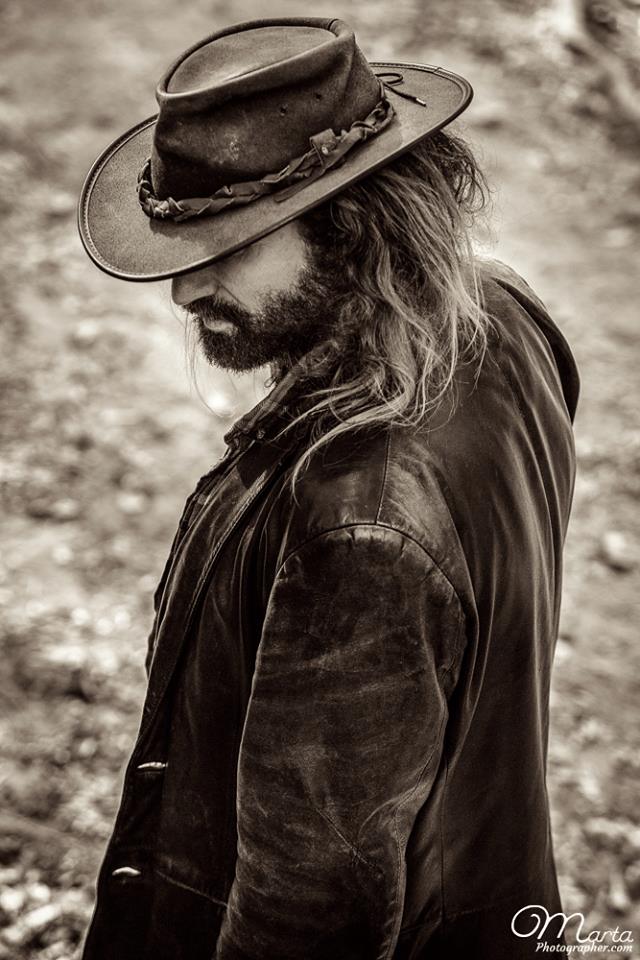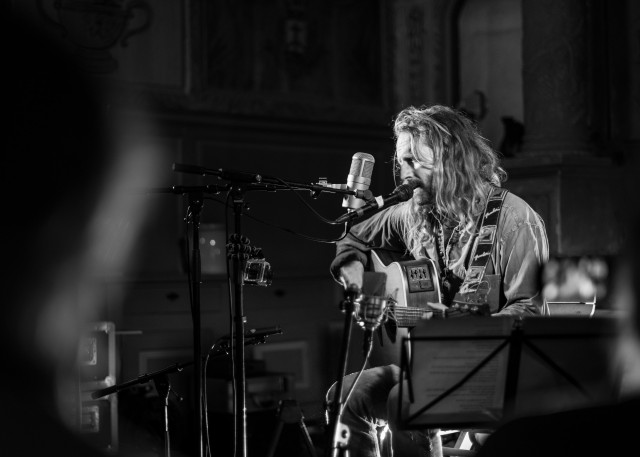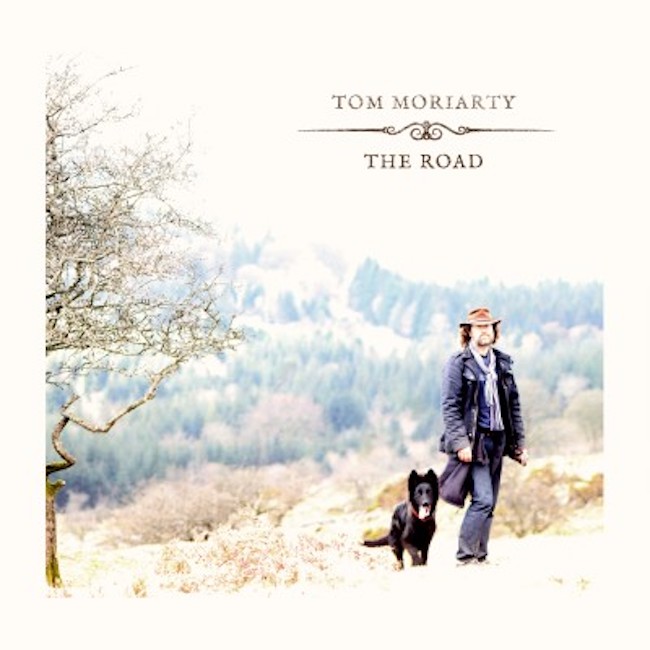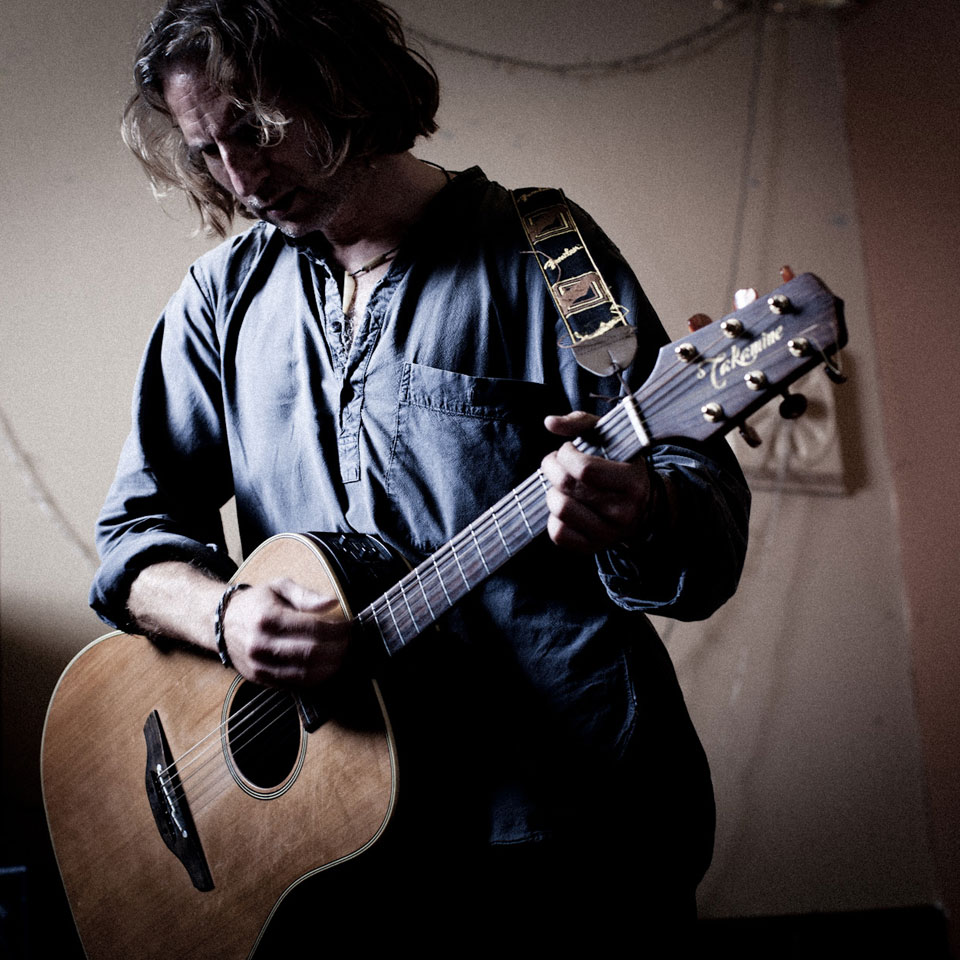![]()
Neither Boris Johnson nor Jeremy Corbyn can save Britain from the divisive mess of Brexit – that’s the view of up and coming protest singer Tom Moriarty.
The husky-voiced troubadour, often compared to Ray LaMontagne, believes the polarisation of politics across not just the UK, but much of the world, stems from the global financial crisis of 2007.
One of the founders of the Occupy London movement, which saw protesters setting up camp next to St Paul’s Cathedral for several weeks in 2011, Moriarty argues hardship wrought by the crash triggered a rise in nationalism and support for populist leaders.
He says the Brexit Leave campaign, backed by wealthy right-wing businessmen, created an “illusion of consensus”, which had nothing to do with preserving British sovereignty.
Here the classically-trained folk musician takes time out from working on his fourth album, to outline his concerns for the “dangerous times” ahead.
He tells Matt Catchpole about his passion for targeting injustice and explains how a career-threatening head injury brought into sharp focus the struggle and suffering of others.
A former student at The London School of Economics, Moriarty joined the Occupy movement because he sympathised with its aim of providing an alternative to what activists saw as an unjust and undemocratic capitalist system.
A year later he would go on to elaborate on these ideas in a book What Just Happened – The Battle for Control of the 21st Century and the Rise of the Corporate Empire.
“I wrote it for myself,” he explains, “I felt it was a good time to be documenting what was going on, the rise of corporate power, the rise of the Right.
“I wrote about the stories that were reported in the news and how they were reported, whether it was companies threatening to leave the country if they didn’t get their way, or banks complaining about regulations to stop them fucking up the world again, exploitation in Africa, or inequality, or the demonisation of protest, or environmental destruction, or societal ills – all this stuff. It was about seeing the whole chess board, paying attention to the signs which showed us where things were leading, where they are leading.”
Though Brexit and the elections of so called ‘strongman’ leaders like Donald Trump, Rodrigo Duterte in the Philippines and Brazil’s Jair Bolsonaro were still some way off, Moriarty believes the seeds were already being sown.
“It’s the same pattern as after the Wall Street crash of ’29,” he explains. ” And there are people who will take advantage of that in order to gain wealth and political power.”
He fears this shift to the right will lead to a return of fascist ideologies, oppression and widespread poverty.

Moriarty believes Brexit is another symptom of the same disease, a “stepping stone of the corporate right”.
“Brexit was all about creating an illusion of consensus for something that is negative for the country and most people in it, using lies and trolls, fake news, fake views,” he asserts.
He has no time for Britain’s new prime minister accusing him of hiding “evil” policies “behind a veil of buffoonery”.
Boris Johnson, Moriarty says, “will hinder the country’s economic recovery in the same way his government has since 2010. And of course he and his collaborators are behind the regression of society, the rise in bigotry, hate crimes, racism, sexism. Our standing in the world has fallen – with him in power, it will fall further.”
And, though he admits having great respect for the Labour Leader, Moriarty says Jeremy Corbyn is not the right figure to ride to Britain’s rescue.
“I rate his progressive policies, but Corbyn’s used up people’s patience and he just ain’t it,” Moriarty says. “For me, Labour should stop all the cloak and dagger crap, stand for Remain and change leader.
“A decent Labour leader is what the country needs to lead us out of this shit and try and undo what this government has done, which basically amounts to national scale vandalism and theft. We don’t actually have a government, we have a group of sociopaths sitting in the same room.”

Moriarty’s activism and acute sensitivity to injustice bleeds into his songwriting.
His natural affinity for the suffering of others was given renewed focus in 2013, when a serious head injury threatened to put an end to his recording career.
“I fell over when I was visiting someone and hit my head. Unfamiliar surroundings etc. I knew I had hit it hard. There was blood,” he remembers.
It was to be the beginning of an 18-month nightmare from which he feared he might never recover.
Plagued by severe concussion, he was left, as he elegantly puts it, on ‘life’s layby’ while he waited for the fog in his head to clear.
Angered by medics’ failure to recognise the seriousness of the condition, he spent the next six months wandering local parks, trudging for hour after hour until eventually his condition started to improve.
Even then it took a whole year “of monk-like existence” before full command of his faculties was restored.
Moriarty’s personal struggle and frustration fed into his raw and uncompromising comeback record The Shore.
At the time of the accident, he was riding high after positive reviews for debut album Fire in the Doll’s House.
Follow up The Road was in the can ready for release, but everything had to be put on hold as Moriarty fought his way though a “personal hell”.
“Those days are a blur, surreal. I found solace by walking in the nearby park, mornings and afternoons trudging out the miles for hours each day,” he says.
“You have to battle hard, keep your faith that it will pass. I fought it out. Eventually the mist passes.”
A constant companion on those walks was his dog, appropriately named Watson, who helped through his darkest moments.
“Every step of the way my dog was with me,” he says. “Dunno how I would have got through it without him.”
Fittingly, Watson joins Tom as cover star on The Road, which was finally released in 2015.

As his condition improved, Tom decamped to a tiny hilltop chapel in southern France to record The Shore.
It’s a stripped down collection of songs, which crystallise his struggle with his illness and the inspiration he took from those he encountered on the long road to recovery.
“When you get injured like that you run into other people who are also sitting in the lay-by of life waiting to recover, he explains.
“So that hardship, the emotions, anger, solace, victory, that battle expresses itself in the album and in many of the songs in one way or another. I think I used that experience to better express the emotions of the lyrics, the characters, the stories in the songs on the album.”
Having plunged the depths of despair, he felt more able to recognise that desperation in others and the courage needed to break on through to the other side.
“It gave me a greater insight into darkness and what it takes to walk through it. It takes discipline, it takes grit, single-minded, blinkered, hard motherfucking determination.
“I think it gave me a deeper understanding of suffering not just in me, but in people’s lives, also the strength it takes to get through hard times, my strength and other people’s strength.”
Though justly proud of all the tracks on The Shore, Tom says, if pushed, he’d single out three songs for special attention.
“I was particularly pleased with When Tomorrow Comes. It’s a story about a refugee family. I really had to go there {in my imagination}.
“They’re from the Middle East and I think they’re from Syria. I spent a lot of time picturing them at their house, a dusty sandy road outside, that really bright sand. I saw the mother, the kids playing, catching the father staring at the ground remembering. Hence it starts with:
“There’s something about this place/I see it in the way the lines are drawn across your face/As if there are some memories you’re hiding/But they won’t let you.
“I spent so much time there, watching them, feeling their feelings of desolation. I was leaning up against a wall, watching. It’s songwriting. It’s about their journey to freedom. The words When Tomorrow Comes were almost given to me. I was walking in the forest with the song playing in the background of my mind and they kind of dropped at my feet.”
The second song emerged from Tom’s great appreciation for nature, which he developed over all those long walks during his illness.
He’s become a talented nature photographer (check out his instagram) and believes this heightened visual sense informs his songwriting.
“Photography made me feel I was achieving something. It’s an important part of recovery I think. Nature’s beauty helped me get through my personalised hell. I guess I needed it and I got better at seeing it and capturing it.
“When you write a melody or a lyric and you arrive at the right one there is a feeling of contentment like it’s slotting into place. And it’s a similar feeling when taking photos in terms of composition, light, framing.
“Seeing that beauty and appreciating that beauty inspires me to write and sing about it, in a way to protect it. The Promise is in fact a song written for Mother Nature:
“Where the white water flows/Where the light and the water collides/So she goes, so she goes/On the chariot wind that she rides.
“Nature is often in my lyrics. I am a passionate conservationist.”
Perhaps the most special song of all, for Moriarty, is album closer Us Against The World .
“There’s something about it, it’s about love, about loyalty, facing the difficulties with someone, facing the injustices, the idiocy, game-playing fucking politicians.
“It is about finding justice, about strength and victory. Structurally it’s interesting, it’s just three verses with the same line repeated at the end. It’s not a song, it’s a hymn. Someone very generously wrote it was a ‘hymn for our times’.”
A disciplined songwriter, Moriarty says he often lives and breathes a song 24/7 for weeks until he gets it right.
“I don’t listen to any other music, I hardly watch TV, don’t want to come across any music in TV shows or ads, no outside influence. It’s the last thing I think about at night and the first thing in the morning,” he explains. “It’s all about giving your creative mind time and space.”
One of his earlier compositions, Me And The Sun from The Road album caught the attention of David Crosby, who says he’d like to meet Moriarty.
Though he’s yet to take up the invitation, Moriarty hopes the pair will get a chance to hook up in the near future.
“When a musical legend like that compliments your music, it’s a big deal,” he says. “I look forward to that day. I’ve got a flight to catch.”

Crosby, Stills and Nash, along with on/off collaborator Neil Young, are major influences on Moriarty’s music, but he credits a diverse range of artists from Aretha Franklin and Carole King to John Lennon and Joe Strummer as inspirations.
“The truth is the best you can do is just be you,” he adds. “Someone once said that my voice is somewhere between the soul of Ray LaMontagne and the rage of {Eddie} Vedder. That’s a great compliment of course, but it’s not so much that they’re influences, it’s just me singing as hard as I can.”
Moriarty, who is of Irish descent, says fans can expect a rockier edge to his new album, due out in the Spring.
“It’s gonna be a little harder, a little more angry in places. I’m also expressing my percussive rhythm guitar playing a little more, which is the origin of many of the songs,” he explains.
The album will build on the folk-rock vibe of The Road rather than the rawness of The Shore, though Moriarty hopes to one day re-visit those very special songs.
“It was so of that time in my life, a coming together of songs, a convergence of circumstances,” he explains. “It feels a very complete album, that collection of songs, those stories. However, I would like to record those songs in a studio one day with instrumentation, maybe some violins in places. So the follow up to The Shore will be The Shore.”
- For more about Tom Moriarty, including his photography, forthcoming releases and live dates, visit his website here.
Like this post? Please subscribe and share with your friends and followers. You might also want to like our page on Facebook.